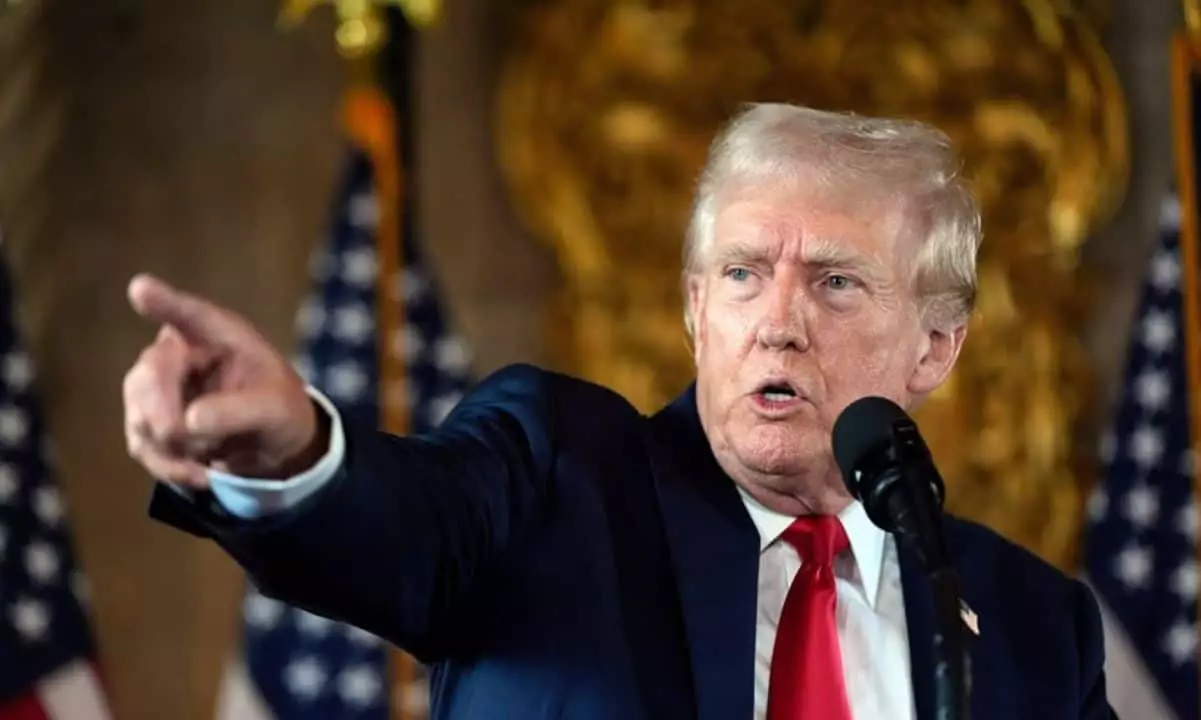In a mind-boggling display of wealth and power, a dinner event hosted at President Donald Trump’s Virginia golf club has raised eyebrows nationwide. Known primarily as a gathering for the elite holders of the TRUMP meme coin, this event reflected not only a blending of the political and crypto elites but also raised pressing ethical concerns. With tickets priced at a staggering cost—one could argue it’s just another one of those excesses that epitomize American capitalism—a substantial portion of the nation’s wealth was funneled into this spectacle. To think that attendees could potentially spend up to $394 million on just a token to sit at a table with the president brings to light the disturbing intersection of influence, finance, and politics.
Perhaps one of the more obnoxious aspects of this gala was its exclusivity, deliberately shutting out those without the means to participate. While former NBA star Lamar Odom stood unashamedly in the spotlight, most attendees remained cloaked in anonymity, hiding behind pseudonyms, which only amplifies suspicions of unregulated foreign influence and opaque funding sources. The very premise of requiring TRUMP tokens for entry raises questions about ethics, legality, and the implications of foreign actors capitalizing on a decentralized finance revolution to exploit weaknesses in U.S. campaign finance laws.
A Flock of Billionaires and the Smell of Corruption
Attendees were no ordinary garden-variety enthusiasts; they were crypto magnates and billionaires, such as Justin Sun, the founder of Tron, who seems to have walked out with not just a warm meal but a Trump Golden Tourbillon watch as well. One would think this would be enough to initiate a deep societal dialogue about wealth and political access, but instead, it feels eerily reminiscent of historical political corruption scandals where wealth converts into influence with little purification. The outlandish nature of these exchanges creates a new elite layer of capitalists who, in their infinite pursuit of gain, could very well compromise the very notions that underpin a democratic society. Even with ongoing investigations into fraudulent activities surrounding crypto, one wonders, how is it that such audacity evades scrutiny?
Moreover, the very idea that over half of the guests may reside outside the United States is unsettling. When foreign nationals find a loophole to amplify their influence in U.S. politics through these innovative yet questionable financial structures, it raises serious alarms. The decision of representatives in Congress to pursue investigations signals that this is not merely a political spectacle but a potential constitutional crisis brewing on the horizon. The potential threat from foreign actors should compel every American to question the integrity of democratic institutions.
The Political Response: Accountability or Complacency?
In a rare moment of bipartisan agreement, 35 congressional members are now advocating for investigations by the Department of Justice into possible violations of the emoluments clause. This collective response represents a critical juncture in how lawmakers perceive the intertwining of wealth and political power, albeit movements like the “Stop TRUMP in Crypto Act,” introduced by Representative Maxine Waters, could also be seen as a desperate attempt to keep up with the astonishing pace of digital asset evolution.
Critics like Elizabeth Warren and Richard Blumenthal have gone so far as to claim that the very event laid a “for sale” sign on the White House, a statement that evokes the harsh realization that political finance could be descending into a chaotic abyss. They are calling for transparent disclosure regarding who attended this divisive event and the substantial investments tied to the TRUMP token. The staggering $111 million from just the top 25 investors serves as a glaring reminder that access and influence can often be bought at a price, thus fueling a sense of skepticism and distrust among the populace.
Business as Usual for Trump
Despite the uproar, the president’s response has been routinely cavalier. While the White House maintains that Trump attended in a personal capacity, reports indicating he shared remarks at a podium bearing the presidential seal provoke questions about the separation between personal and official capacities in this unprecedented blend of political and financial engagements. After hearing excited cheers, Trump returned to his routine, swiftly leaving the venue as if to suggest that ethical concerns are irrelevant in his fervent quest for wealth and influence. This indifference could potentially set a disconcerting precedent, normalizing a culture where ethics are eschewed in favor of financial dominion.
The TRUMP crypto dinner has metamorphosed into a symbol of forthcoming challenges that may redefine accountability in a political landscape increasingly tainted by wealth and influence. As we stand at this contentious crossroads, one cannot help but wonder: has the American experiment lost its moral compass, or are we witnessing a pivotal moment that motivates us to reclaim the principles of transparency and integrity in governance?

